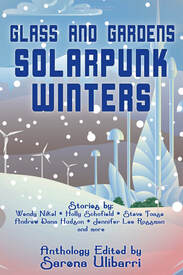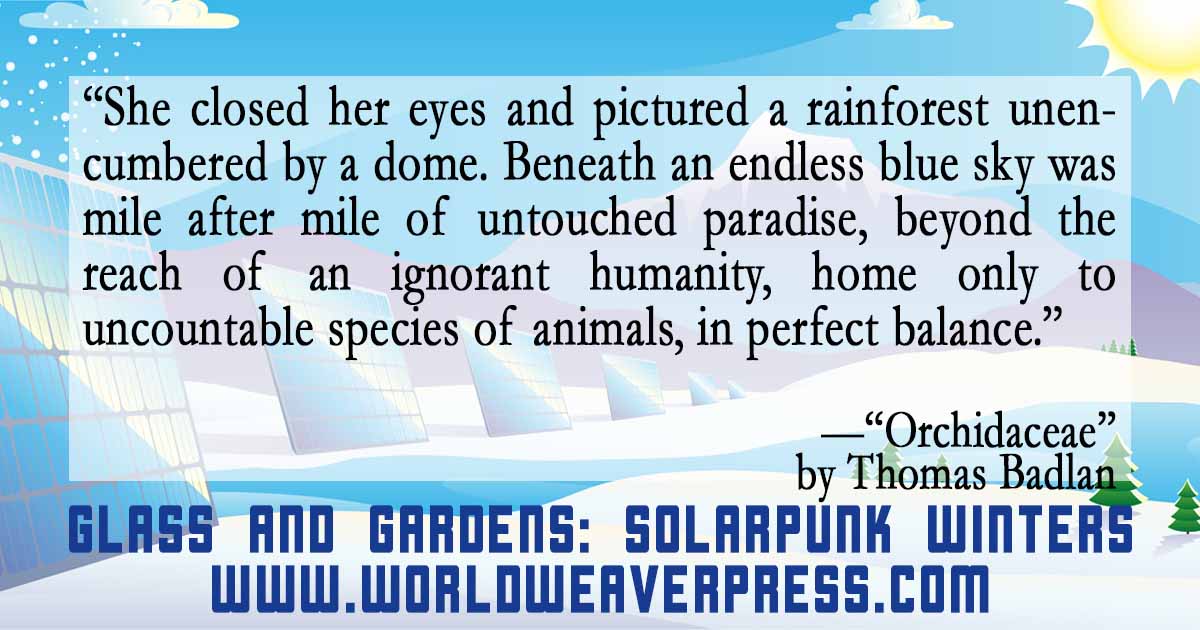 Guest Blog by Thomas Badlan I’ve been obsessed with the end of the world for a long time. I can remember reading Stephen King’s The Stand when I was a teenager and being enthralled watching a society fall apart. In recent years I joined a local ‘Post-Apocalyptic Book Club’ in my home city of Manchester. We’ve read a lot of stories about the apocalypse, featuring a surprising variety of genres, tones and subject matter. Stories of people surviving and struggling against zombies, asteroids and pandemics, even carnivorous jam. Almost all of them were weighty stories, featuring wide-spread destruction and death. I’m even currently writing a novel about the end of the world, about the loss of all electrical energy to the world and the ramifications of such an event. I know plenty about the end times. So when I discovered a call for submissions about ‘positive’ post-apocalyptic fiction, I was surprised. It was a breath of fresh air. After cannibalism and nuclear war, it was nice to discover a sub-genre as optimistic as solarpunk even existed. It was new to me, though I was aware of its more famous cousins: cyber- and steam-. Its themes, of equality, adaptability and harmony were something that felt invigorating, even liberating, because it freed me from the usual tropes of armed conflict and horrible violence. Conflict is the fuel writers use to propel their characters forward, but in my story Orchidaceae I didn’t need all that much of it, just a disagreement about direction. I had always wanted to write something about the Svalbard Seed Vault, I’d come across it when researching other works. When I started writing, I had mused about having my characters doing battle against armed invaders trying to take the seed vault away from them. I quickly realised though: I didn’t need any of that. That was the obvious way to create drama. It was cheap and unnecessary. Instead the conflict would come about because two adults had a disagreement about policy. They would have a conversation and discover that, in truth, they were both on the same side. I recently visited the Eden Project in Cornwall, a beautiful county in the South of the UK. If you’re ever in that little corner of the world I highly recommend a visit. It hadn’t really entered my mind when I conjured the Svalbard Recovery Project’s domes and greenhouses, but the Eden Project is very much cut from the same cloth. There are two enormous domes; the Rainforest and Mediterranean Biomes. Both are home to thousands of species of plants, protected from the sometimes freezing elements and carefully tended by a diligent staff. The Eden Project does serious conservation work but it’s also a tourist attraction. When I visited one wet autumn afternoon I found it full of families enjoying its humid, vibrant pathways. I feel that sometimes plants are often overlooked in this age of climate emergency. We fret more about the loss of animal species than we do about plants but the truth is that the flora of the Earth is the bedrock on which all life survives. It’s important to protect these environments from the ever-encroaching reach of mankind. Just before Christmas, my partner and I are going tree planting. I believe it’s important to remain connected to the natural world and every single effort of conservation or restoration is important. We are the only species on this planet that has the power to destroy or save the world. Immersing oneself in the apocalypse is fun for a while, but in truth, no-one wants to see such stories made reality. Thomas Badlan has been an aspiring writer for as long as he can remember. He studied Creative Writing at the University of Derby. He is a long standing member of Manchester’s Monday Night Writers Group and currently works a literacy teaching assistant. “Orchidaceae” in Glass and Gardens: Solarpunk Winters is his first published story.
0 Comments
Your comment will be posted after it is approved.
Leave a Reply. |
World Weaver PressPublishing fantasy, paranormal, and science fiction. Archives
February 2024
|
- Home
-
Books
-
All Books
>
- Beyond the Glass Slipper
- Bite Somebody
- Bite Somebody Else
- Black Pearl Dreaming
- Cassandra Complex
- Causality Loop
- Clockwork, Curses, and Coal
- Continuum
- Corvidae
- Cursed: Wickedly Fun Stories
- Dream Eater
- Equus
- Fae
- Falling of the Moon
- Far Orbit
- Far Orbit Apogee
- Fractured Days
- Frozen Fairy Tales
- Glass and Gardens: Solarpunk Summers
- Glass and Gardens: Solarpunk Winters
- Grandmother Paradox
- Grimm, Grit, and Gasoline
- Haunted Housewives
- Heir to the Lamp
- He Sees You When He's Creepin': Tales of Krampus
- Into the Moonless Night
- Jack Jetstark's Intergalactic Freakshow
- King of Ash and Bones (ebook)
- Krampusnacht
- Last Dream of Her Mortal Soul
- Meddlers of Moonshine
- Mothers of Enchantment
- Mrs Claus
- Multispecies Cities
- Murder in the Generative Kitchen
- Recognize Fascism
- Scarecrow
- Sirens
- Shards of History
- Shattered Fates
- Skull and Pestle
- Solarpunk (Translation)
- Solarpunk Creatures
- Solomon's Bell
- SonofaWitch!
- Speculative Story Bites
- Trenchcoats, Towers, and Trolls
- Weredog Whisperer
- Wolves and Witches
- Anthologies and Collections
- Novels
- Novellas
- Fairy Tale
- Fantasy
- Romance
- Science Fiction
- Urban/Contemporary Fantasy
- Young Adult SFF
-
All Books
>
- Blog
- About
- Contact
- Press / Publicity
- Newsletter Signup
- Privacy Policy
- Store


 RSS Feed
RSS Feed